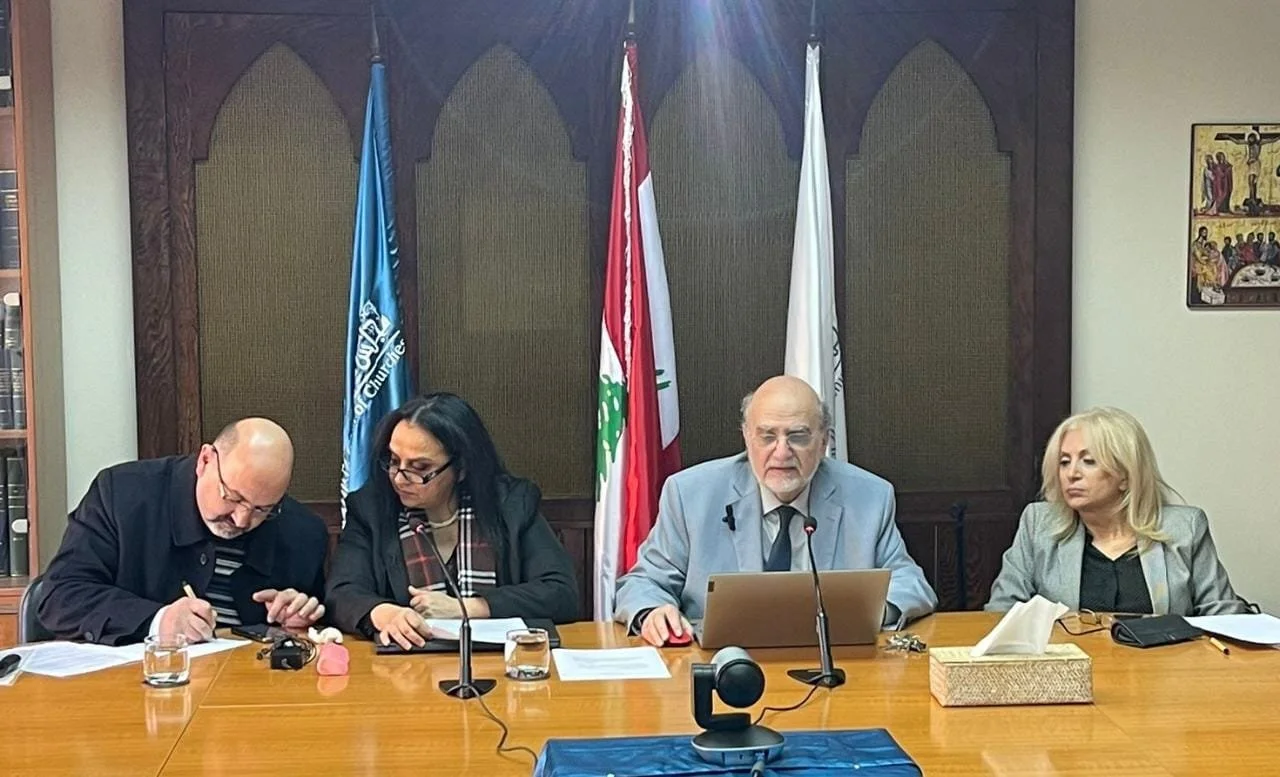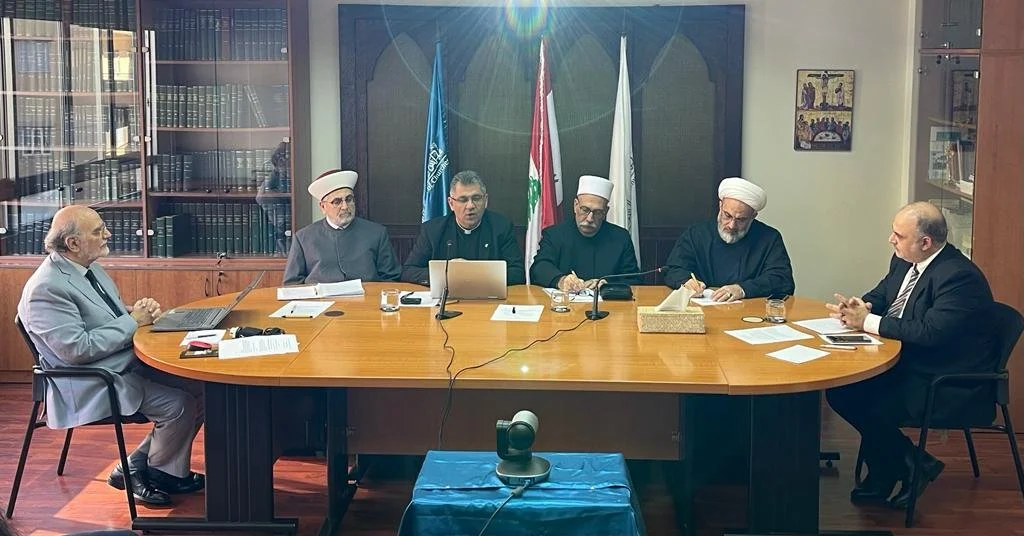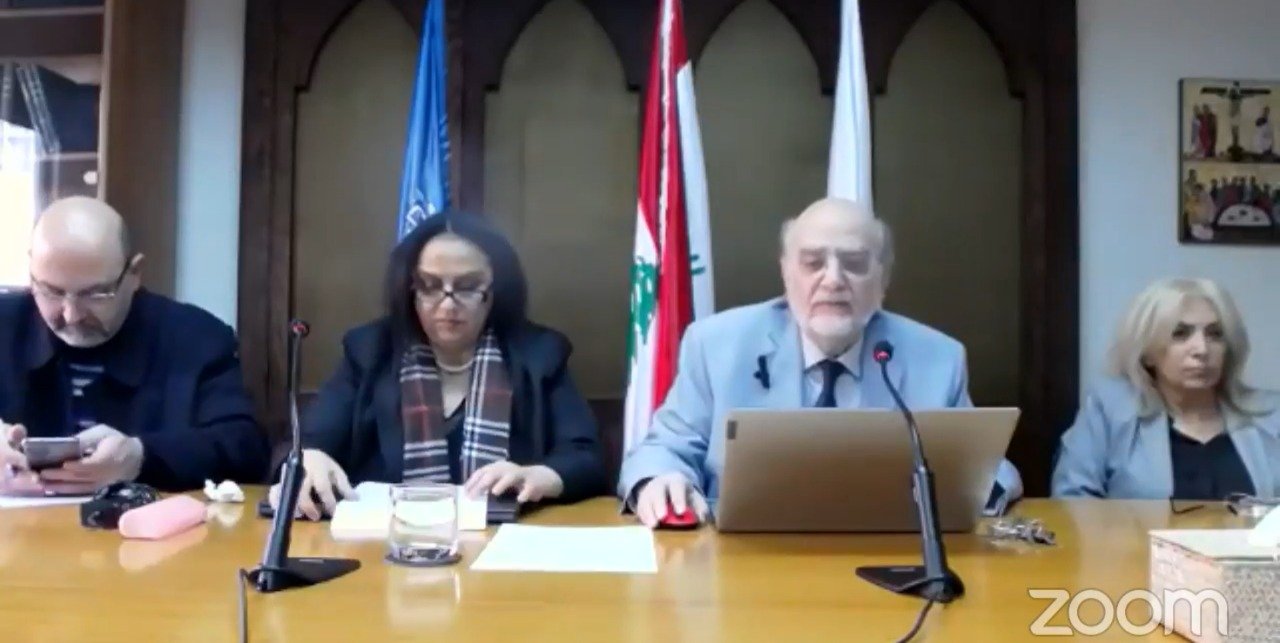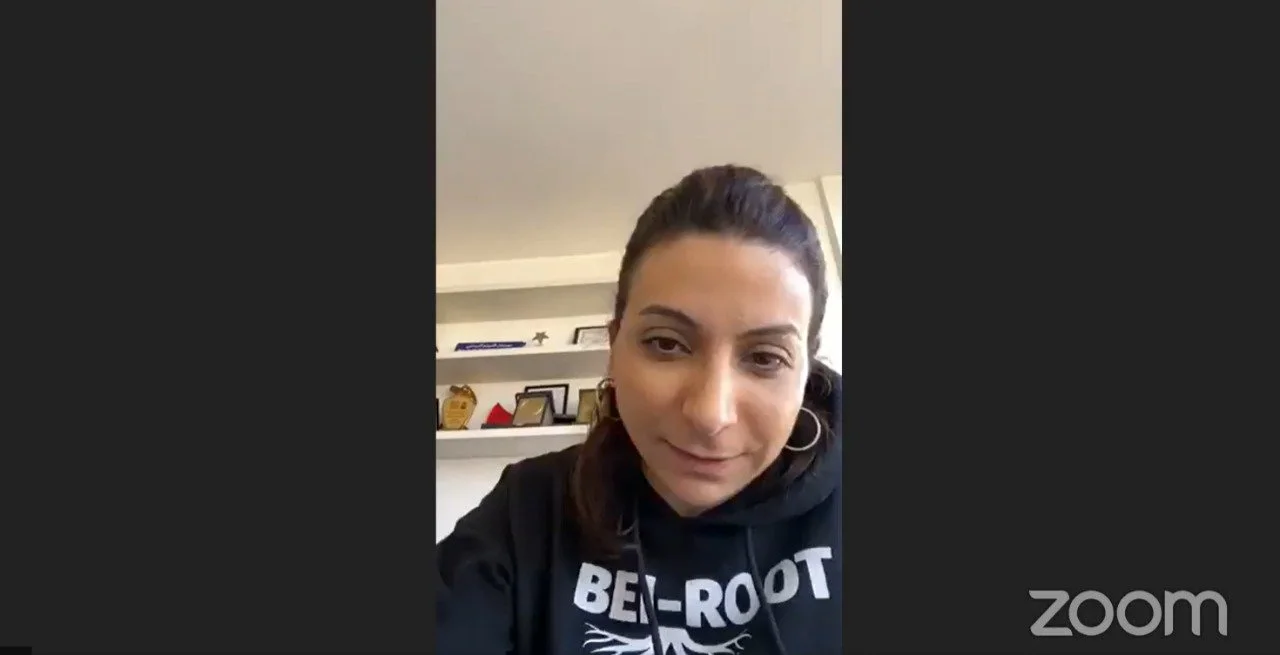The Prisoner and Human Dignity
A Round Table Organized by MECC
Secretary General Dr. Michel Abs: If prison is not a place where the perpetrator regains his self-confidence and lost dignity because of what he had committed, then what a miserable place it is!
Amidst the exacerbated economic, social and political crises... in the region and the world, the human dignity is at risk, especially among the most vulnerable people. In light of the painful circumstances, the prisoner’s issue in the countries of the region seems to be forgotten or as if it is a side issue due to other humanitarian problems that may be considered as priorities for governments. But what are the prisoner's challenges today? How can we describe their psychological situation? What are the views of the law, society and religion towards the prisoner's issue?
Answers were highlighted during a round table held by the Middle East Council of Churches under the title "The Prisoner and Human Dignity", on Thursday 26 January 2023, as part of its series of monthly seminars. Participants were guests and experts who attended at the headquarters of the MECC’s General Secretariat in Beirut, or online via Zoom.
The seminar was broadcasted live on the MECC Facebook page and started with a speech delivered by the MECC Secretary General Dr. Michel Abs in which he said, “The great challenge facing humanity, which civilized countries have dealt with, lies in the possibility of transforming the period of punishment into a constructive period, except in rare cases, when the criminal is inflicted with a chronic mental illness from which it is difficult for him to recover.”
He continued “If prisons are places into which a person convicted of a minor crime or misdemeanor enters and leaves, specializing in several types of crimes, then the measures are ineffective. If prison is not a place where the perpetrator regains his self-confidence and lost dignity because of what he had committed, then what a miserable place it is.”
He added “The first approach to rehabilitate a person who has been punished for a crime or misdemeanor is by helping him to regain his dignity along with restoring his self-confidence. It is a reform program that has its conditions, targets and methodologies. If the places of detention are not transformed into rehabilitation centers, then they will become de jure crime-training institutes…
Profession and work give man his value in the world of modernity in which we live. Therefore, we consider that providing the convict with appropriate vocational training and transforming him into a professional person who is able to earn his living in honorable and respectful ways is the best policy for rehabilitating prisoners and launching them on the road to recovery.”
He ended “Society, through the state- as well as through private sector bodies- is responsible for protecting society by rehabilitating these people, not by punishing them. Perpetrators of crimes, whether they are delinquents, those with misdemeanors, precedents and perpetrators of crimes, pose a great challenge to human society in which economic, social and political mechanisms have concurred to produce them, and is therefore responsible for their recovery.”
The round table included two sessions with specialists and activists’ speakers from different fields and religions, in addition to segments for discussion and questions. The first session was entitled "Prisoner's Dignity: A Legal, Psychological and Social Approach" and moderated by Dr. Laure Abi Khalil. Firstly, the actress Zeina Daccache talked about the challenges of the prisoner in Lebanon and human dignity, as well as her strive to launch drama therapy theater in Lebanese’s prisons.
Then, Juge Dr. Nidal Chamseddine highlighted the topic of the law, the prisoner and human dignity, and talked about the guarantees which protect the prisoner’s rights and the difficulties he or she faces, as well as the obstacles preventing the implementation of commitments to the Universal Declaration of Human Rights. Moreover, Dr. Nizar Abou Jaoudeh addressed the issue of the prisoner between crime and punishment, presented a psychosocial approach, and defined the crime and its causes, punishment and its problems.
Following the break, the second session revolved around "The Prisoner's Dignity from a Religious Perspective" and was moderated by Dr. Chawki Attieh. This session focused on the position and view of each of the Christian, Islamic and Druze religions on the prisoner’s issue. Discussions also centered on the religious service in prisons and how to preserve the prisoner’s dignity amidst the difficult conditions of the prisons in Lebanon and the region.
Speakers were Father Marawan Ghanem, President of Nusroto Association - Prison Fellowship Lebanon, Sheikh Dr. Abdul Rahman Al Rifai, Faculty of Shariaa Al Azhar Akkar in Lebanon, Dr. Muhammad Hijazi, a university professor and representative of the Supreme Islamic Shiite Council, and Sheikh Sami Abd Al-Khaliq, representative of the Sectarian Council of the Druze Monotheistic faith in the Supreme National Prisons Authority.
During the session, Father Marawan Ghanem, President of Nusroto Association - Prison Fellowship Lebanon, presented the difference between prison and jail, and mentioned the legal and international standard of the freedom in practicing religious rituals inside prisons, stressing the need to preserve the privacy of prisons in Lebanon.
From his end, Sheikh Dr. Abdul Rahman Al Rifai, Faculty of Shariaa Al Azhar Akkar in Lebanon, defined the concept of imprisonment and its legality, and said that imprisonment shouldn’t affect human dignity, which is by its nature a gift from God that mustn’t be compromised. He also explained the difference between this dignity and the earning dignity which changes according to human action.
In his turn, Dr. Mohammad Hijazi, a university professor and representative of the Supreme Islamic Shiite Council, talked about the importance of promoting the concept of dignity and treating prisoners with love. He also based his approach by citing Quranic Verses which focuse on the prisoner’s issue.
At the end, Sheikh Sami Abd Al-Khaliq, representative of the Sectarian Council of the Druze Monotheistic faith in the Supreme National Prisons Authority, highlighted the religious message which emanates from the divine will as a message of mercy, tolerance, love and brotherhood for humanity; and hence, this is how prisoners should be treated.




